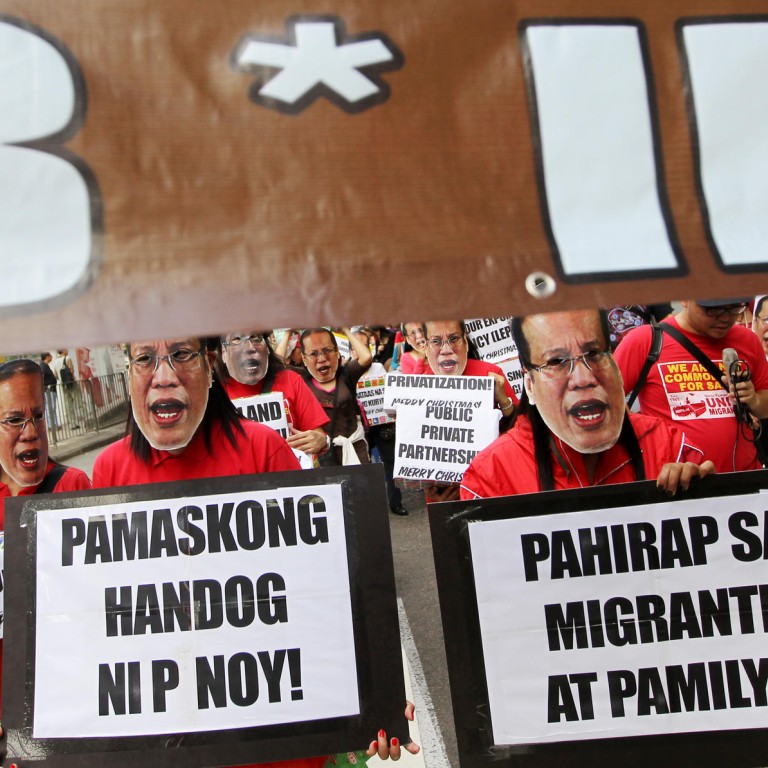
Leung defends request to Beijing for views on residency
Chief executive says gaining clarification from NPC will address 'root of the problem' and says city must tackle legal issues
Chief Executive Leung Chun-ying yesterday defended his government's controversial decision to ask the Court of Final Appeal to seek Beijing's opinion on the city's residency laws.
He suggested this would address "the root of the problem" of pregnant mainlanders coming to the city to give birth.
In a radio programme, Leung did not comment explicitly on court cases which involve two right-of-abode cases.
But he said: "I have managed to stop private hospitals taking in mainland mothers giving birth. Now how do we address the root of the problem? We have to work on the legal aspect."
The other case involves foreign domestic workers seeking permanent residency, to which they are not entitled under current law.
Leung did not seek to explain the Department of Justice's submission to the court last week.
But his comments were seen as a clear reference to its request to the court to seek clarification from Beijing of its 1999 interpretation of the Basic Law's provision for permanent residency.
The clarification is being sought because the NPC's 1999 interpretation was not followed by the top court in its judgment in 2001 which granted residency to children born to mainland parents in Hong Kong.
The decision to request the court seek a clarification is controversial because it brings into question the independence of Hong Kong's judiciary from both the Hong Kong and mainland governments, and more broadly whether the city will retain its relative autonomy in domestic affairs.
But Leung said: "We respect judicial independence and this is one of Hong Kong's core values."
A ban on maternity wards accepting reservations from non-local mothers starts on January 1. Critics said Leung's comments took into account the sensitive timing of the request to the court.
Liberal Party lawmaker James Tien Pei-chun said: "The administrative measures could be challenged in court. This is, I think, the biggest reason why the government resorted to asking for [Beijing's clarification]."
Law professor Eric Cheung Tat-ming, of the University of Hong Kong, said the recent administrative measures adopted against pregnant mainlanders appeared to be a success, raising questions as to whether it was worth risking damage to the city's rule of law by seeking a National People's Congress ruling.
"This shows the government is determined to have the 2001 judgment overturned, one way or another," Cheung said.
Meanwhile, migrant workers denounced the attempt to obtain Beijing's intervention on their residency claims. During a protest in Central on labour rights issues, Dolores Balladares, of the Asian Migrants Co-ordinating Body, said: "We are surprised at the action ... It's the issue of the fundamental rights of all people in Hong Kong ...Why not wait for the Court of Final Appeal?"



